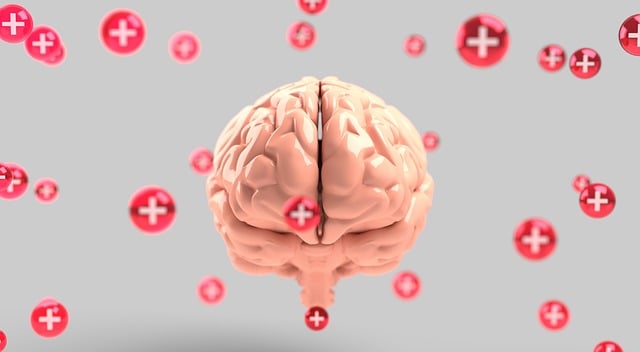Social media's constant connectivity impacts teens' mental health, fostering comparison culture that leads to inadequate self-images and heightened anxiety. Curated online personas increase stress and distorted self-perception. Easy access to global issues can trigger anxiety, especially on pressing topics like climate change or social injustices. Excessive screen time isolates teens from real-life interactions, impacting social skills and mental health. Therapy for teenage anxiety is crucial, offering offline coping strategies and respite from digital pressures, helping navigate academic expectations and social media fears through treatments like CBT and mindfulness practices. Family therapy sessions address interpersonal dynamics, focusing on effective treatments for teenage anxiety.
In today’s digital age, technology and social media have become integral parts of teen life. While these tools offer numerous benefits, they also contribute significantly to rising levels of anxiety among adolescents. This article explores the multifaceted impact of social media and technology on teens’ mental health, focusing on heightened stress, increased isolation, and amplified academic and peer pressure. We delve into available therapy options designed specifically to address teenage anxiety, offering insights for parents, educators, and caregivers.
The Impact of Social Media on Teen Mindset
The constant connectivity offered by social media platforms can have a profound impact on teens’ mindset and mental health. With every notification, like, or comment, there’s an instant validation of their actions and appearances, fostering a culture of comparison that often leads to feelings of inadequacy. Teens, already navigating the complexities of adolescence, are now exposed to a constant stream of curated lives, leading to heightened anxiety about keeping up with peers. This pressure to present a perfect online persona can result in increased stress and a distorted self-image.
The easy accessibility of information and the rapid spread of news on social media also contribute to teens’ exposure to global issues and concerns, making them more aware of societal problems. While this awareness can be empowering, it can also trigger anxiety, especially regarding topics like climate change or social injustices. Without proper guidance and therapy for teenage anxiety, these online experiences might intensify their feelings of helplessness and worry.
Technology Use and Increased Isolation
Technology has woven itself into the very fabric of teenage life, offering both opportunities and challenges. While social media platforms provide a sense of connection and community, excessive screen time can contribute to feelings of isolation and disconnection from real-life interactions. The constant comparison to others’ curated online lives can lead to low self-esteem and a distorted perception of reality, exacerbating teen anxiety.
As teens spend more time online, they may miss out on developing essential social skills and face-to-face communication. This isolation can be particularly detrimental for those already struggling with anxiety, as it may limit their support networks and opportunities for offline therapy for teenage anxiety. The digital world’s seductive allure can make it difficult for teens to disconnect, leading to disrupted sleep patterns and further fueling anxiety symptoms.
Digital Pressure: Academic and Peer Expectations
The digital age has brought about immense pressure on teenagers, as they face academic and peer expectations in a whole new way. With schoolwork increasingly digitized and social interactions predominantly happening online, teens feel the weight of maintaining a perfect academic record and cultivating an impressive digital persona. This constant need to present a polished, curated self can lead to heightened anxiety levels. The fear of missing out (FOMO) and the pressure to perform drive many teenagers to over-commit themselves, leading to burnout and increased stress.
Social media platforms, while offering opportunities for connection, also contribute to this pressure. Teens often compare their personal achievements and experiences to those they see online, fostering feelings of inadequacy. The fear that others might have a better life or be more successful can trigger anxiety and depression. As such, seeking therapy for teenage anxiety becomes an essential step towards helping young individuals navigate these digital pressures and develop healthy coping mechanisms.
Therapy Options for Managing Anxiety in Teens
Anxiety disorders among teenagers are on the rise, and this trend is closely tied to their digital lives. While technology and social media offer vast opportunities, they also present unique challenges that contribute to heightened anxiety levels. Thankfully, there are several therapy options tailored specifically for teenage anxiety. Cognitive-behavioral therapy (CBT) has proven effective in helping teens identify and change negative thought patterns and behaviors contributing to their anxiety.
Mindfulness-based therapies, including mindfulness meditation and yoga, are also gaining traction as complementary treatments. These practices teach teens how to stay present, reduce rumination, and better manage stress responses. Additionally, family therapy sessions can address interpersonal dynamics that may play a role in an adolescent’s anxiety while providing parents with tools to support their child’s mental health journey.
Technology and social media, while offering undeniable benefits, have also contributed to a rise in teen anxiety. The constant connectivity and pressure to present a perfect online persona can take a toll on young minds. However, there are effective therapy options available for managing teenage anxiety, such as cognitive-behavioural therapy (CBT) and mindfulness practices. By recognizing the impact of digital pressures and promoting healthy technology use habits, parents and caregivers can play a vital role in supporting teens’ mental health. Embracing these strategies together can help alleviate the burden of anxiety and foster resilience among teenagers.
